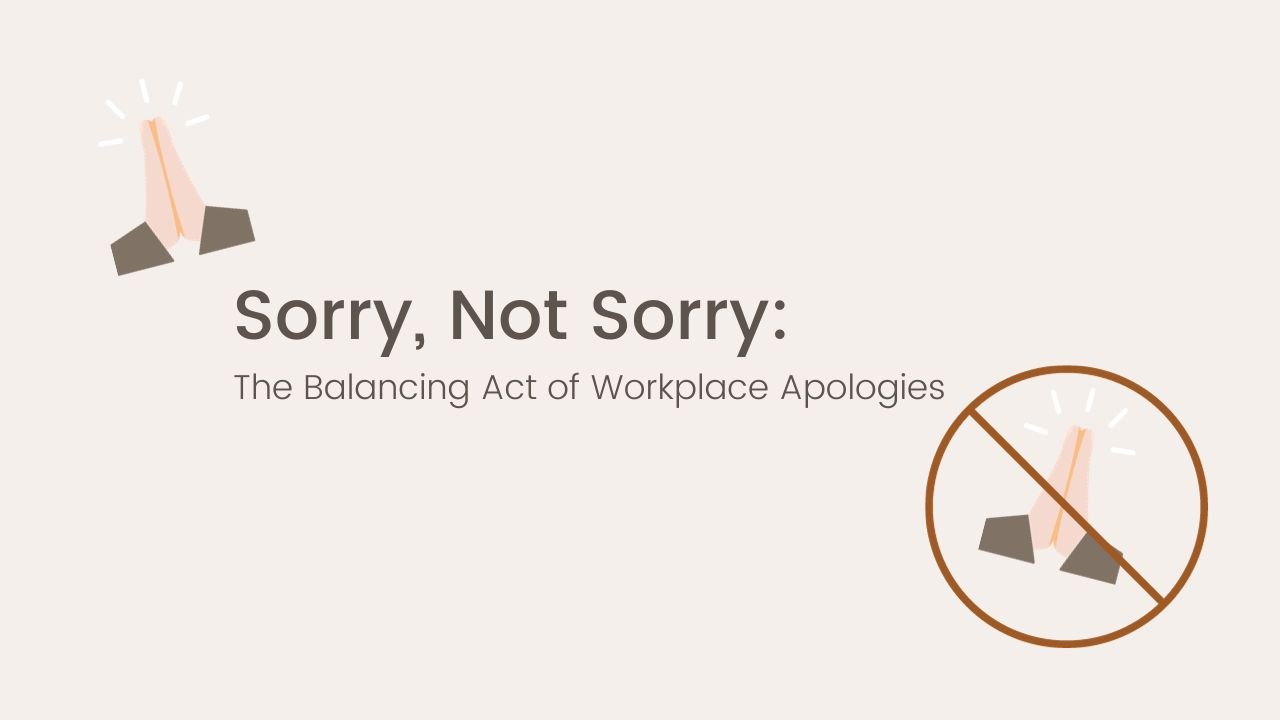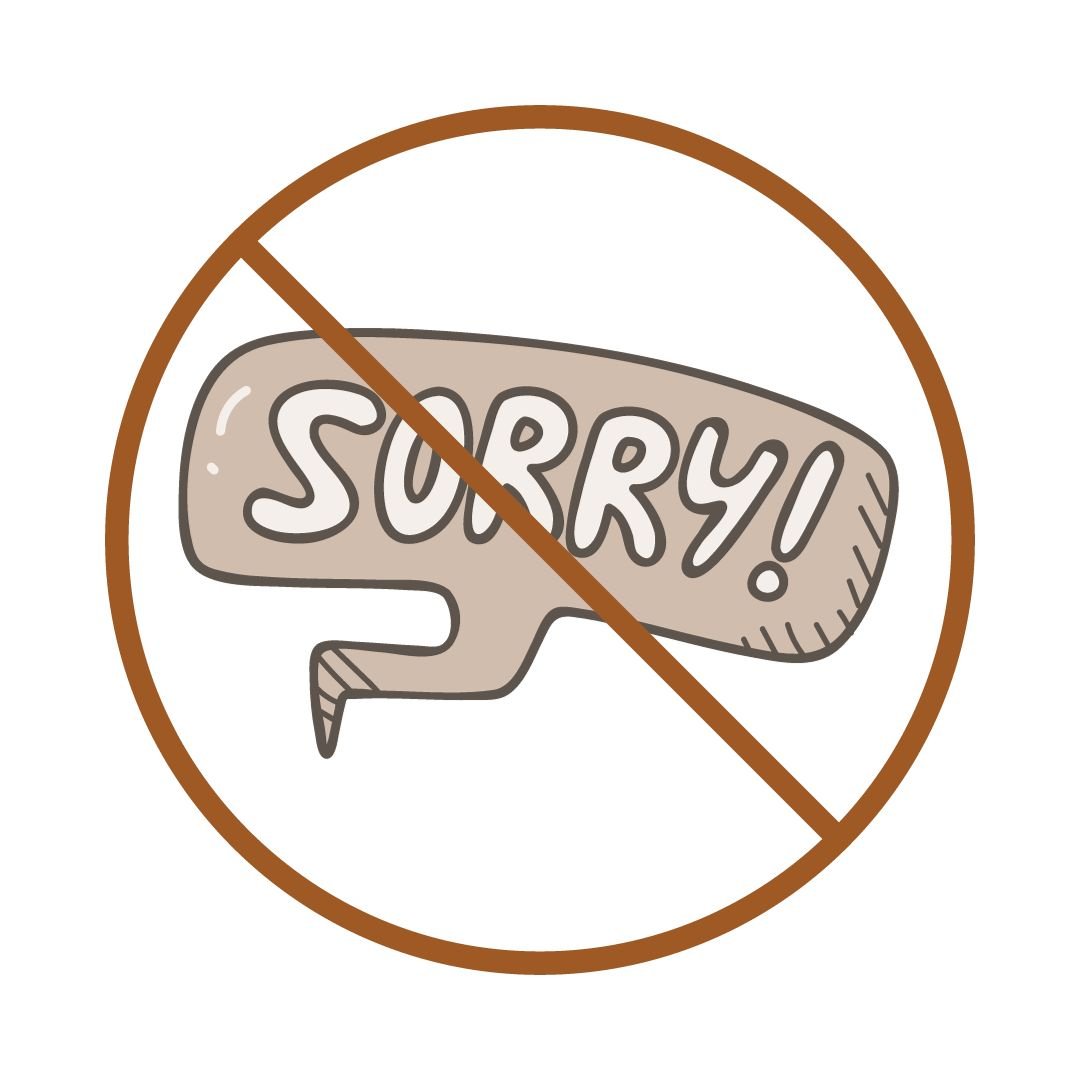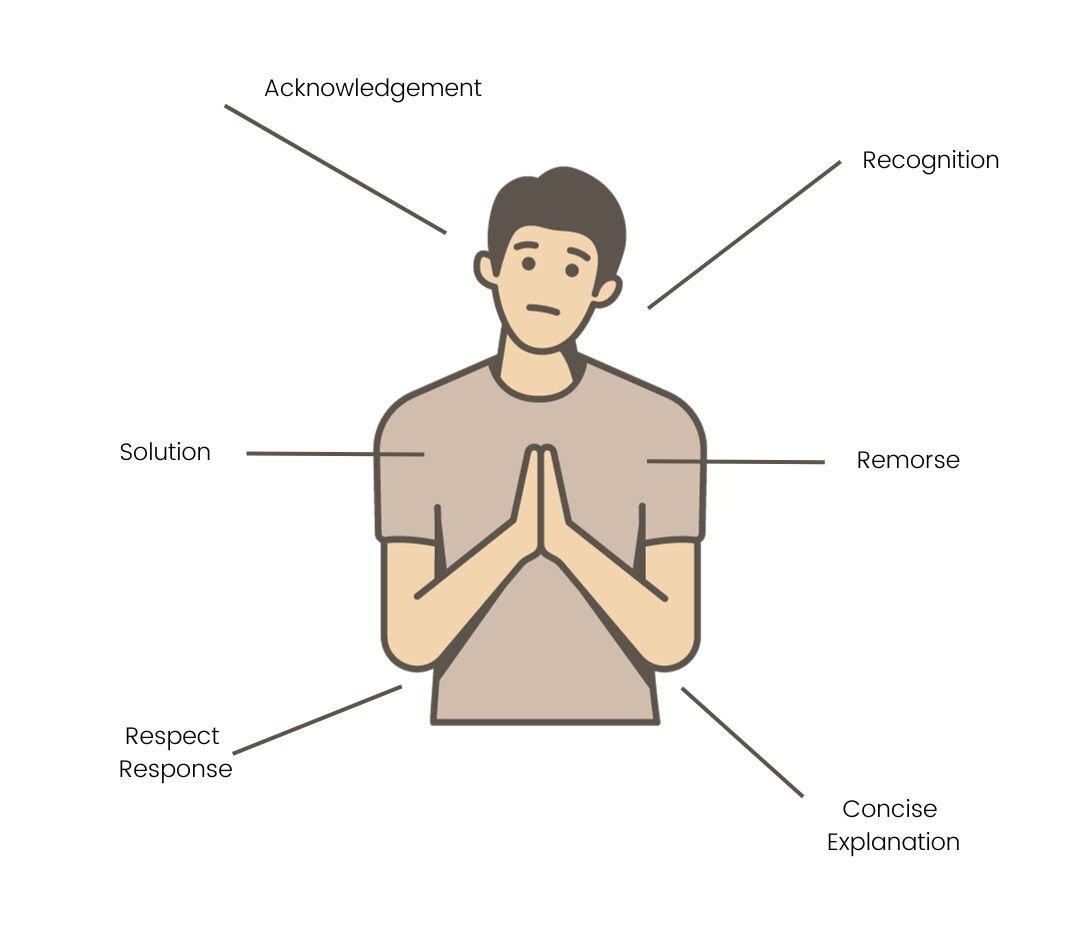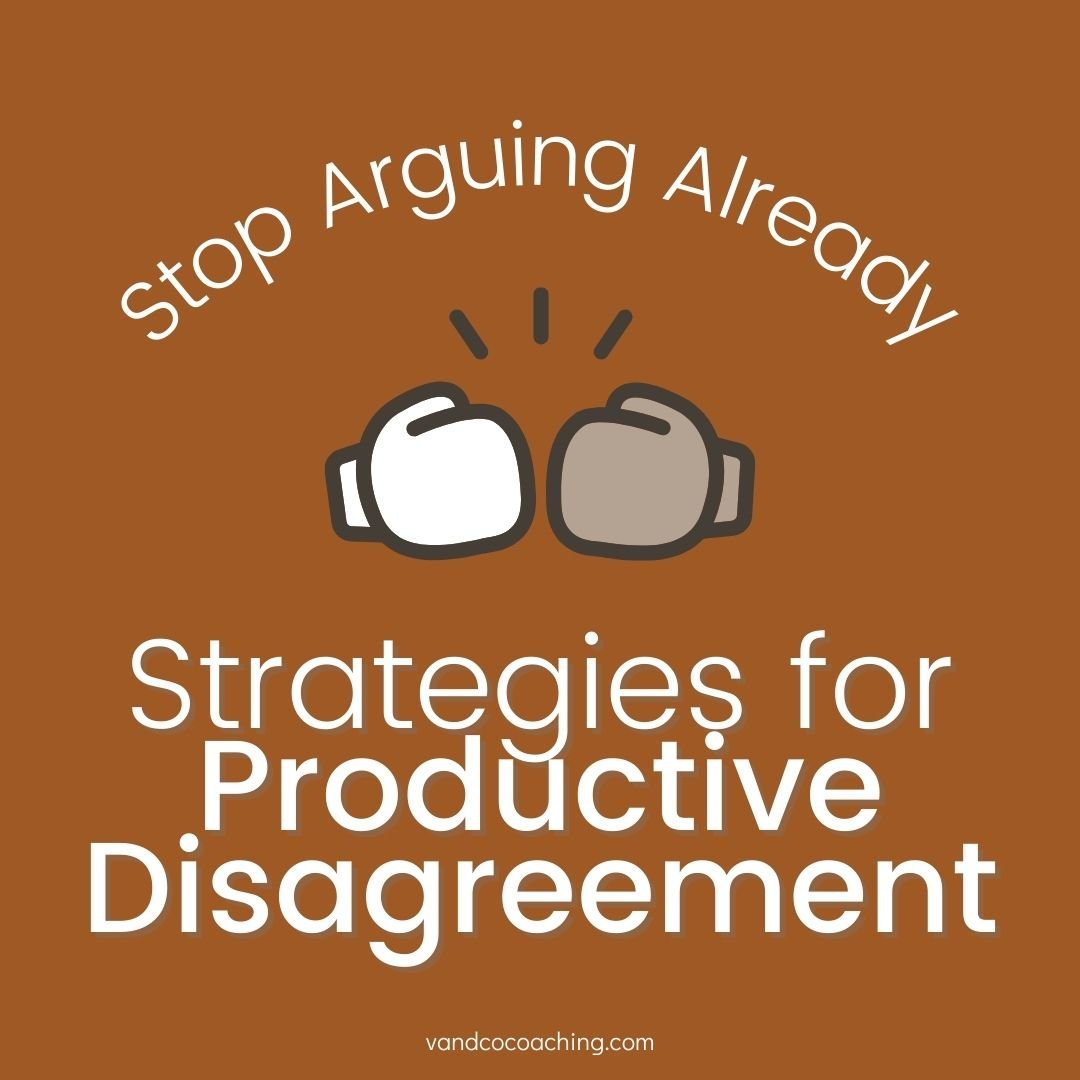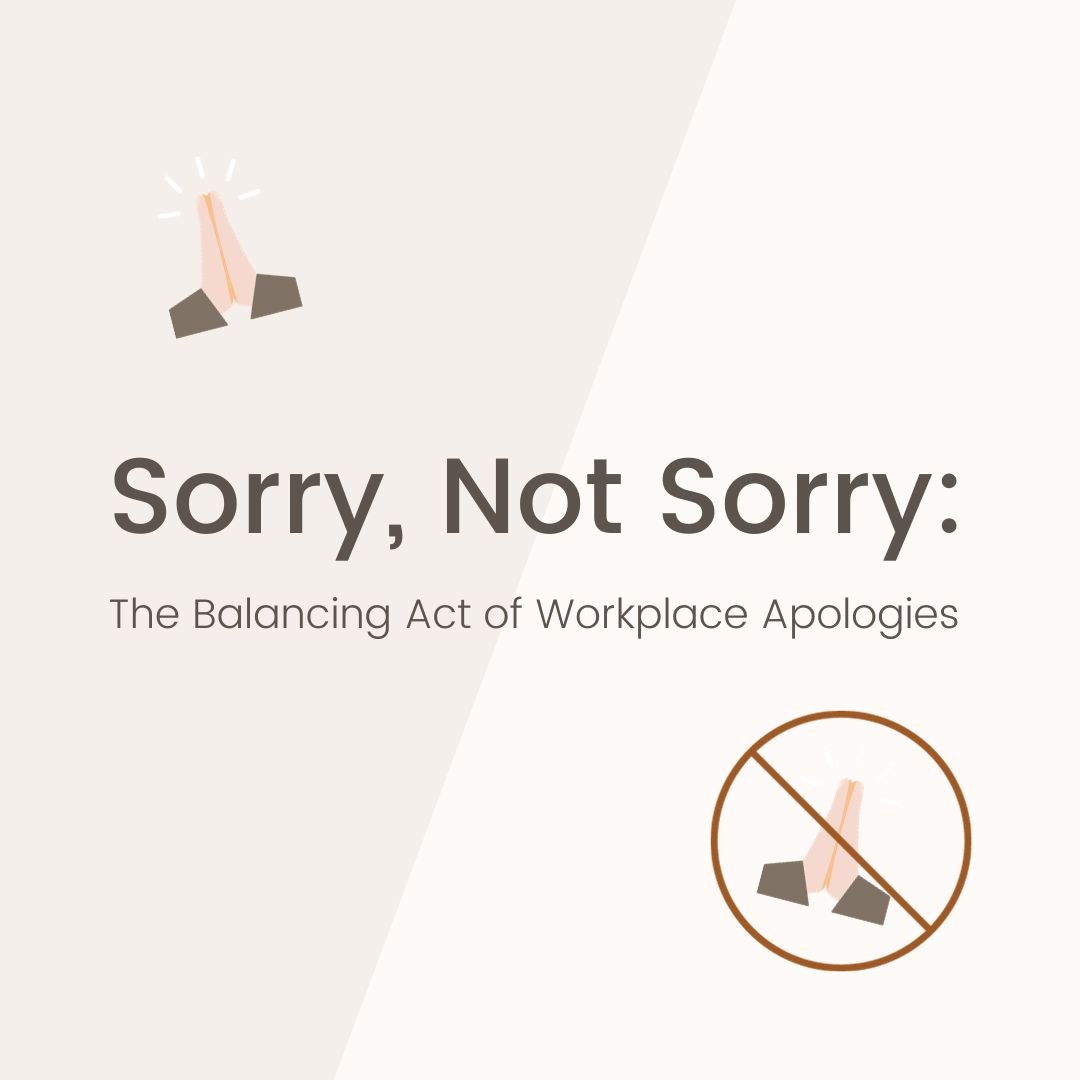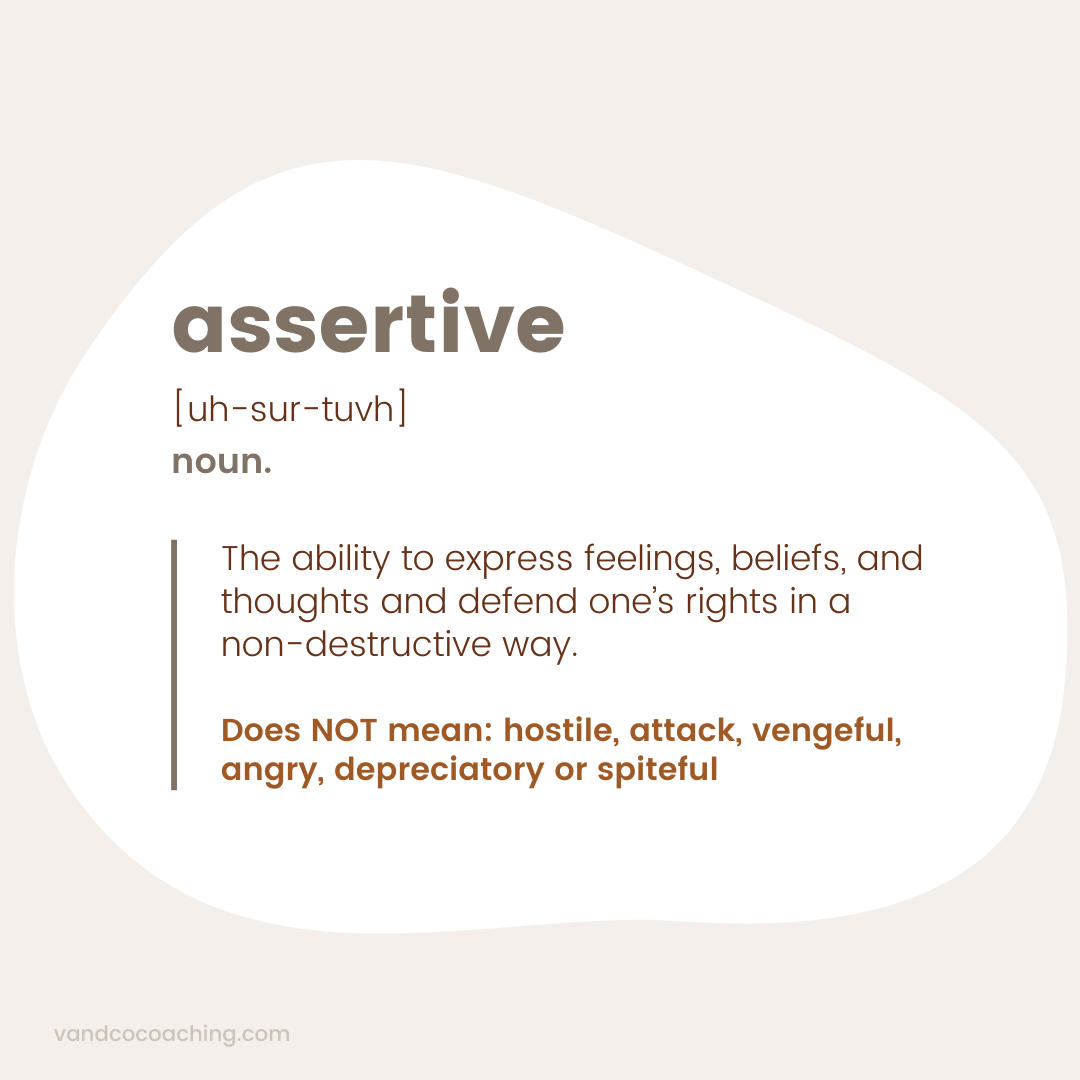Sorry, Not Sorry: The Balancing Act of Workplace Apologies
Apologize or No?
I recently asked for feedback on my teaching style. While I usually welcome constructive criticism, the feedback scenario she shared left me embarrassed — I had interrupted a colleague several times during a conversation. This situation left me wondering: do I apologize? Or is an apology excessive in a professional context?
In the end, I chose to apologize. I believed in my intent behind interrupting (we were short on time and I wanted to welcome other voices) but I was embarrassed by how I handled the situation and its impact. Yet I had lingering uncertainty about whether an apology was necessary. This decision was complicated by the fact that I, like many, tend to over-apologize.
So I built a framework below I can refer to next time I’m in this situation. Additionally, the broader theme “how and when to apologize” ties back to topics such as executive presence, effective communication, and showing up according to our values. It's about aligning our behavior with our ideal selves.
The Downside of Over-Apologizing: Undermining Your Message
"I’m sorry" can often slip from our lips as a reflex. For instance, we say “sorry” when we intend to empathize or use it as a tool to soften the impact of what we’re going to say next, like: “Sorry, but I’m going to miss next week’s meeting.” Thought leaders like Tara Mohr have underscored the (nuanced) point that language like “Sorry but", “I just think,” and “…does that make sense?” can undermine and take power away from our statements. Frequent apologies may also give the impression that you’re unqualified or lack confidence/authority, even if it’s not the case. What’s more, by continually apologizing for merely being yourself or expressing your needs, you yourself might come to believe it, eroding your self-confidence over time.
When NOT to Apologize:
Apologizing for being yourself: Stop apologizing for your personality, preferences, opinions, or emotions.
It's someone else's mistake: If the issue isn't primarily your fault, consider whether an apology is necessary.
Something outside your control: Sometimes, events unfold that are beyond anyone's control. For instance, instead of apologizing for rescheduling with reasonable notice, I say, “Thank you for your understanding, I have to reschedule.”
Within a range of normal human error: We all make mistakes from time to time. Not every minor slip warrants an apology. Be gentle with yourself!
When you haven't done anything wrong: If you genuinely believe your actions and impact align with your values and intentions, think twice before saying sorry. Remember that you’re not responsible for other’s emotions.
The Pitfalls of Under-Apologizing
Avoiding an apology can have significant consequences. It can lead to communication breakdowns, leaving people feeling unheard and unacknowledged, deterring them from engaging in open and honest conversations in the future. This breakdown can strain or even sever relationships, resulting in feelings of resentment, hurt, or betrayal. In professional settings, failing to apologize for errors or misjudgments can damage one's reputation.
When to Apologize
It can be tricky to decide when to apologize - not strewing apologies like sheets of paper from a busted printer, but not avoiding them either. Check in with your values. Take responsibility inwardly first. When someone shares their dissatisfaction with you, listen for understanding, not to reply.
Guidelines on When to Apologize:
When Your Actions Go Against Your Values: Apologize when your behavior contradicts your principles.
When You've Caused Harm, Regardless of Intent: Intentions matter, but they don't erase harm caused. If your actions have hurt or negatively impacted someone, an apology is necessary.
When You've Made a Mistake: Take responsibility for errors to demonstrate accountability.
When You've Failed to Listen or Communicate Effectively: In cases where miscommunication or a lack of attentiveness has led to confusion or frustration, offering an apology can help restore effective communication and rebuild trust.
Anatomy of an Effective Apology
A meaningful apology has two essential dimensions: an inward and an outward one. Inwardly, it's crucial to reflect on the situation and consider how your actions align with your values. Acknowledge any missteps or impacts, even if unintended. Outwardly, your apology should communicate your introspection while validating the other person's feelings and experience.
Here are some points to consider for an effective apology:
Start with a Clear Apology: Begin with phrases like "I’m sorry I…" or "I want to apologize for…"
Acknowledge Your Actions. Clearly articulate what you did wrong or describe the specific situation that caused harm. Avoid using vague or evasive language.
Recognize Your Impact. Demonstrate your understanding of how your actions affected the other person and their feelings. Show that you grasp why it was detrimental.
Express Remorse: Exhibit genuine regret for the consequences of your actions on the other person. Linking your apology to your core values can emphasize your accountability. For instance, if you value honesty, you can say, “I value honesty, and I fell short of this in this situation.”
Concise Explanation. While you may have reasons for your actions, keep your explanation brief. Emphasize how your behavior contradicted your values and affected the other person.
Offer a Solution. Be proactive and propose a clear solution. This showcases your commitment to accountability and attentiveness to resolving the issue.
Respect Their Response: Understand that the other person may need time to process your apology or may not be ready to forgive immediately. Respect their feelings and boundaries.
In Conclusion: Apologies as Growth Catalysts
Finding the right balance in apologies isn't easy. Over-apologizing and under-apologizing both have pitfalls that affect self-worth and relationships. But self-leadership isn't about being flawless; it's about embracing our humanity. It's about having the wisdom to recognize when an apology is due, the courage to make it sincerely, and the resilience to learn and grow from our experiences.
As I reflect on the writings of folks like Tara Mohr, I agree that eliminating "I'm sorry's" and qualifiers like "Well, I think" is small potatoes in the vast landscape of personal and professional development. Yet, every significant change begins with heightened awareness and a willingness to experiment with showing up differently. Considering apologies is as good an entry point as any.

